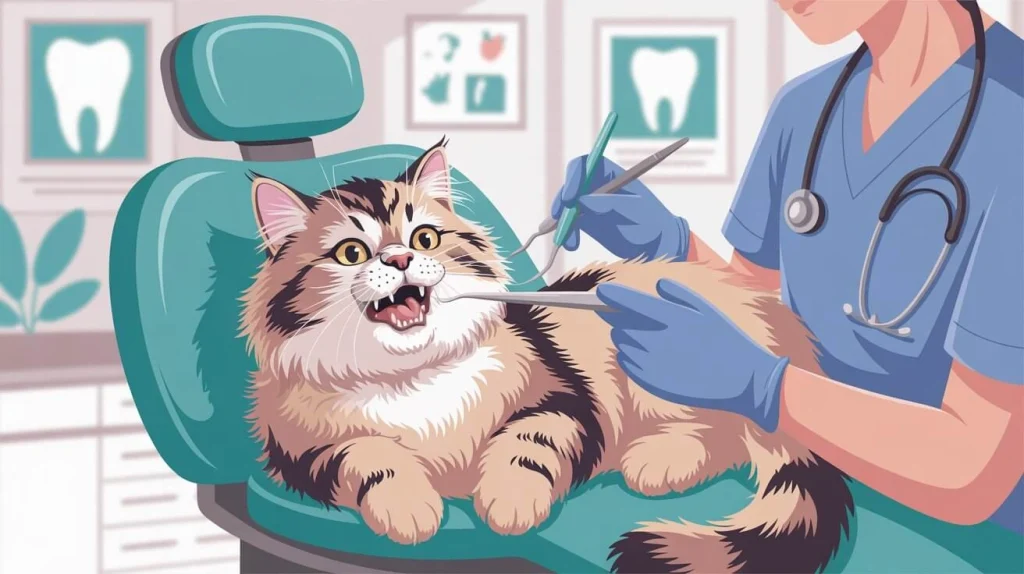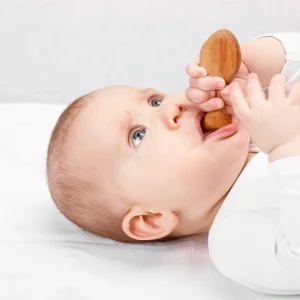While it’s tempting to ignore, bad breath could be the first sign of deeper dental issues. Cat dental cleaning isn’t just a grooming task—it’s a vital part of your cat’s overall health care routine. Without proper dental hygiene, cats can develop painful conditions that affect their ability to eat, play, and live comfortably.

Content
Why Cat Dental Cleaning Matters for Long-Term Health
Just like humans, cats need regular dental care to stay healthy. Their mouths are home to bacteria that, when left unchecked, can form plaque and tartar. Over time, this buildup leads to gingivitis, periodontal disease, and even tooth loss.
Dental disease is one of the most common health problems in adult cats, affecting nearly 70% of felines over age three. Preventive care, including regular cat dental cleaning, is the best way to ensure your cat avoids painful dental conditions and enjoys a higher quality of life.
Common Signs of Dental Issues in Cats
Cats instinctively hide signs of discomfort, which means dental problems often go unnoticed. However, here are some key symptoms that may indicate a problem with your cat’s dental health:
- Persistent bad breath
- Inflamed or bleeding gums
- Difficulty chewing or dropping food
- Pawing at the face or mouth
- Decreased appetite or weight loss
- Brown or yellow tartar buildup
- Excessive drooling or changes in grooming habits
- Tooth discoloration or visible damage
If you notice any of these signs, contact your vet as soon as possible to schedule an oral exam.
At-Home Tips for Supporting Your Cat’s Dental Health
Daily care is the foundation of long-term oral health. Although brushing your cat’s teeth might seem intimidating at first, it becomes easier with patience and consistency.
How to Brush Your Cat’s Teeth:
- Start slowly: Let your cat get used to the smell and taste of the toothpaste.
- Use proper tools: Get a soft-bristled cat toothbrush and vet-approved enzymatic toothpaste.
- Be gentle: Use small circular motions and focus on the outer surface of the teeth.
Additional At-Home Dental Tips:
- Offer dental treats designed to reduce plaque.
- Add dental water additives to your cat’s drinking bowl.
- Provide dental chew toys that help scrape off tartar naturally.
Consistency is key. Even small daily efforts can help delay the need for professional cleanings and prevent more serious dental issues.
Why Professional Cleanings Are Still Necessary
Even if your cat cooperates with at-home care, they still need professional cleanings to ensure deeper issues are addressed. A vet can detect and treat problems not visible during regular brushing.
What Happens During a Professional Cleaning?
- Pre-anesthetic blood work to ensure your cat is healthy for sedation.
- Full-mouth examination and dental X-rays.
- Scaling and polishing to remove plaque/tartar above and below the gumline.
Anesthesia is necessary for thorough dental cleanings. It allows your vet to work below the gumline—where serious infections begin—without causing your cat stress or pain.
The Hidden Dangers of Ignoring Dental Care
Failing to clean your cat’s teeth can lead to more than just bad breath. Here are some serious risks of ignoring your cat’s dental care:
- Periodontal Disease: A painful condition that affects the gums and tooth-supporting structures.
- Tooth Abscesses: Infections around the root that cause severe pain and require extractions.
- Organ Damage: Bacteria from the mouth can damage the kidneys, liver, and heart.
Regular dental checkups and cleanings help catch these issues early and keep your cat feeling their best.
When to See the Vet for Cat Dental Cleaning
The American Veterinary Dental College recommends annual dental cleanings for most cats. Some cats, especially senior cats or those prone to tartar buildup, may require cleanings every 6–9 months.
Schedule an appointment if:
- Your cat hasn’t had a dental checkup in the past year.
- You notice signs of dental discomfort or gum inflammation.
- Your cat has chronic conditions like kidney disease or diabetes.
Ready to Book a Cat Dental Cleaning?
If your cat hasn’t had a recent dental exam—or if you’ve noticed signs of discomfort—it’s time to take action. Dental health is crucial to your cat’s longevity and overall wellness. Contact your local vet today to schedule a professional cleaning and give your feline friend a healthier, happier life.
Conclusion
Cat dental cleaning is more than just a cosmetic routine—it’s a critical part of maintaining your feline companion’s overall health and well-being. By understanding the signs of dental issues, incorporating daily care at home, and scheduling regular professional cleanings with your vet, you can prevent painful conditions and improve your cat’s quality of life.
Frequently Asked Questions
How often do cats need dental cleanings?
Most cats need a professional dental cleaning once a year. Cats with chronic dental issues may need cleanings more frequently.
Is it really necessary to brush my cat’s teeth?
Yes. Brushing is one of the most effective ways to prevent plaque buildup and reduce the need for frequent cleanings.

Jesus is a health blog author who has been writing about nutrition, fitness and healthy living for over 10 years. He also loves to run, hike and bike with her wife.






